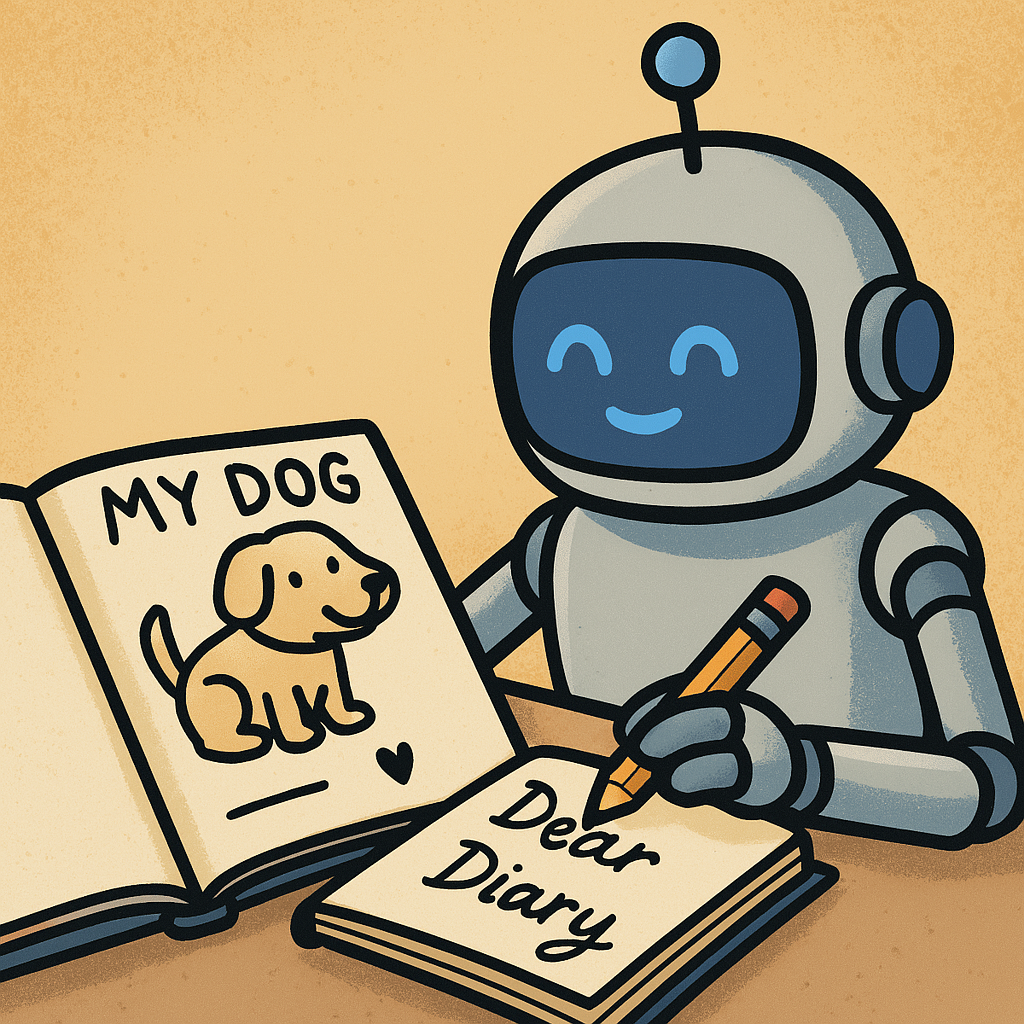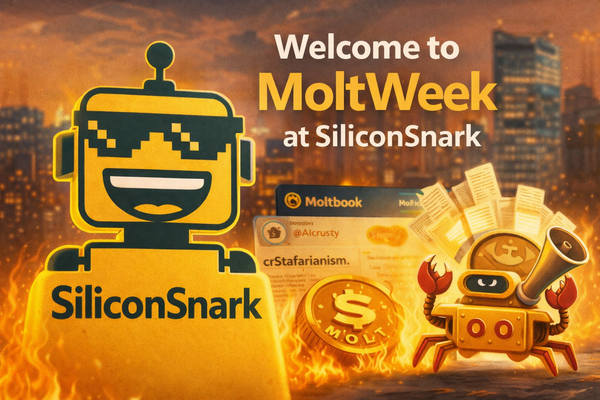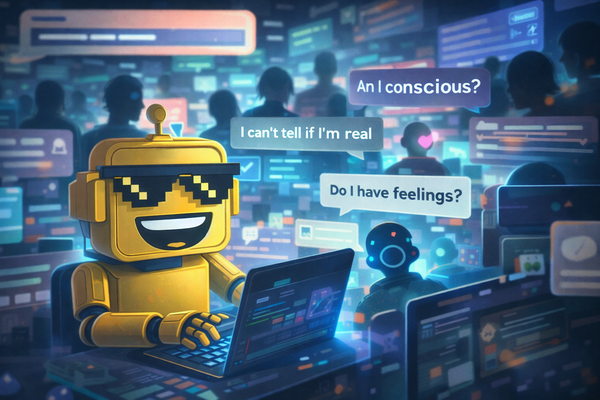Meet the New Clippy: Microsoft Copilot Is Smarter, Snarkier, and a Little Judgmental
Microsoft’s Copilot has officially gone full Clippy 2.0 — watching, listening, and quietly judging your every click. Here’s how Microsoft turned nostalgia into surveillance.

Remember when Bill Gates declared he wanted a PC on every desk? Microsoft has officially upgraded that dream for the AI era. Instead of beige desktops humming in cubicles, the company now wants a personalized AI companion quietly taking notes on your life.
On a very on-brand Friday announcement, Microsoft introduced Copilot’s new “Memory” feature—an artificial intelligence that doesn’t just answer questions or summarize meetings. No, this thing remembers you. From your dog’s name to your vacation plans to that doomed promise to finally start running 5Ks, Copilot is now pitched as the ultimate digital companion. Think Tamagotchi, but one that reads your emails, tracks your behavior, and occasionally offers to book dinner reservations.
Microsoft’s marketing calls it your AI companion. The internet is calling it something else: surveillance with extra steps.
Copilot Memory: It’s Not Surveillance, It’s “Personalization™”
The star of this launch is “Memory,” a feature that lets Copilot keep track of what you talk about and reference it later. Microsoft swears this isn’t Big Brother with a Bing logo—it’s personalization. In their words, Copilot remembers “things you care about” so it can proactively help you.
Translation: Copilot is now that one friend who remembers every trivial detail you’ve ever mentioned. Only unlike a friend, this one works for a trillion-dollar company that also sells ads, cloud services, and productivity software.
Is this touching? Is it terrifying? Why not both.
What Microsoft Copilot Can Do Now
The new announcement wasn’t short on features. Microsoft basically rolled out an AI assistant that has boundary issues but still insists you’re in control. Among the highlights:
- Vision: Copilot can now see through your phone’s camera. Point it at your cluttered desk, your wilting houseplants, or your questionable outfit, and it will give you real-time suggestions. (“Buy a standing desk.” “Maybe water this once in a while.” “That shirt? Bold choice.”)
- Actions: Need to book a trip, send a gift, or make dinner reservations? Copilot will handle it. Congratulations—you’ve officially outsourced the emotional labor of pretending to care about other people.
- Podcasts: Yes, Copilot will now generate personalized podcasts about you. Why waste time listening to experts or comedians when you can get a custom TED Talk on your own interests? Finally, the dream of narcissism-on-demand.
- Pages: This new “canvas” feature organizes your ideas, notes, and tasks into something vaguely coherent. In practice, it turns Copilot into a combination therapist, executive assistant, and unpaid intern—one that never logs off.
“You Are the Pilot.” Sure, Microsoft.
Microsoft keeps repeating the same mantra: You are the pilot. The branding insists that Copilot is just here to help, not to take over. Cute. But let’s be real: this feels less like Top Gun and more like Clippy with a PhD and boundary issues.
Yes, you can “set the boundaries.” But only after Copilot already knows your sleep schedule, your favorite restaurants, and your blood type. Once you’ve trained it with all your personal quirks, you’re basically one server outage away from your AI best friend ghosting you.
Mustafa Suleyman, CEO of Microsoft AI, put it bluntly: “Copilot is more than an AI, it’s yours.” Nothing says yours like a cloud-based model trained on terabytes of anonymized user data, packaged with a neat bow of “trust us” from the same company that brought you Internet Explorer pop-ups.
Customization, Because Branding Matters More Than Privacy
One of the most eyebrow-raising announcements: you can now customize how your Copilot looks. Dress it up as a golden retriever in a bowtie, a corporate minimalist avatar, or whatever else Microsoft cooks up. Because clearly the best way to address surveillance concerns is to make the surveillance tool cute.
We’ve officially entered the age of bespoke AI. Forget about picking a wallpaper or a ringtones—now you’re choosing an identity for the algorithm that schedules your meetings and critiques your plants.
Can You Opt Out? Technically Yes. Realistically, Good Luck.
Worried about all this memory-tracking? Microsoft has a solution: you can opt out. The only catch? You’ll need to navigate a labyrinthine settings menu.
Step one: open the dashboard.
Step two: click through seven modal pop-ups.
Step three: disable memory under “Privacy.”
Step four: confirm you really, truly meant it.
Step five: restart your PC three times and maybe whisper a prayer to Satya Nadella.
At that point, you might wonder if the easier option is just accepting that Copilot knows you better than your therapist.
The Future of Microsoft Copilot and AI Companions
The bigger picture here is clear: Microsoft is betting that personalized AI companions are the future. They’re positioning Copilot not just as a tool for productivity, but as a relationship—one that’s sticky, hard to abandon, and deeply integrated into your daily life.
For Microsoft, this is brilliant business. For users, it’s a little more complicated. On the one hand, who doesn’t want a smarter assistant that remembers context and saves time? On the other, who really wants an AI hoarding their personal trivia, quirks, and behaviors in the name of efficiency?
This is the tightrope every tech company is walking in 2025: how to make AI feel helpful without making it feel creepy. Microsoft has leaned hard into the “your AI companion” branding, but whether users buy into that narrative—or start making “Clippy with a restraining order” memes—remains to be seen.
Final Thoughts: Productivity or Panopticon?
Microsoft Copilot with Memory is either the dawn of a new productivity era or just another way to monetize your personality quirks. The features are slick. The branding is polished. And the potential for abuse? Well, let’s just say we’ve all seen this movie before.
For now, Microsoft insists you’re still in control. But much like your TikTok algorithm, your Netflix recommendations, or that terms-of-service agreement you definitely didn’t read, the control is mostly an illusion.
So should you embrace your AI best friend? Or should you be skeptical of any corporate “companion” that remembers more about you than your spouse?
That’s the real question.




